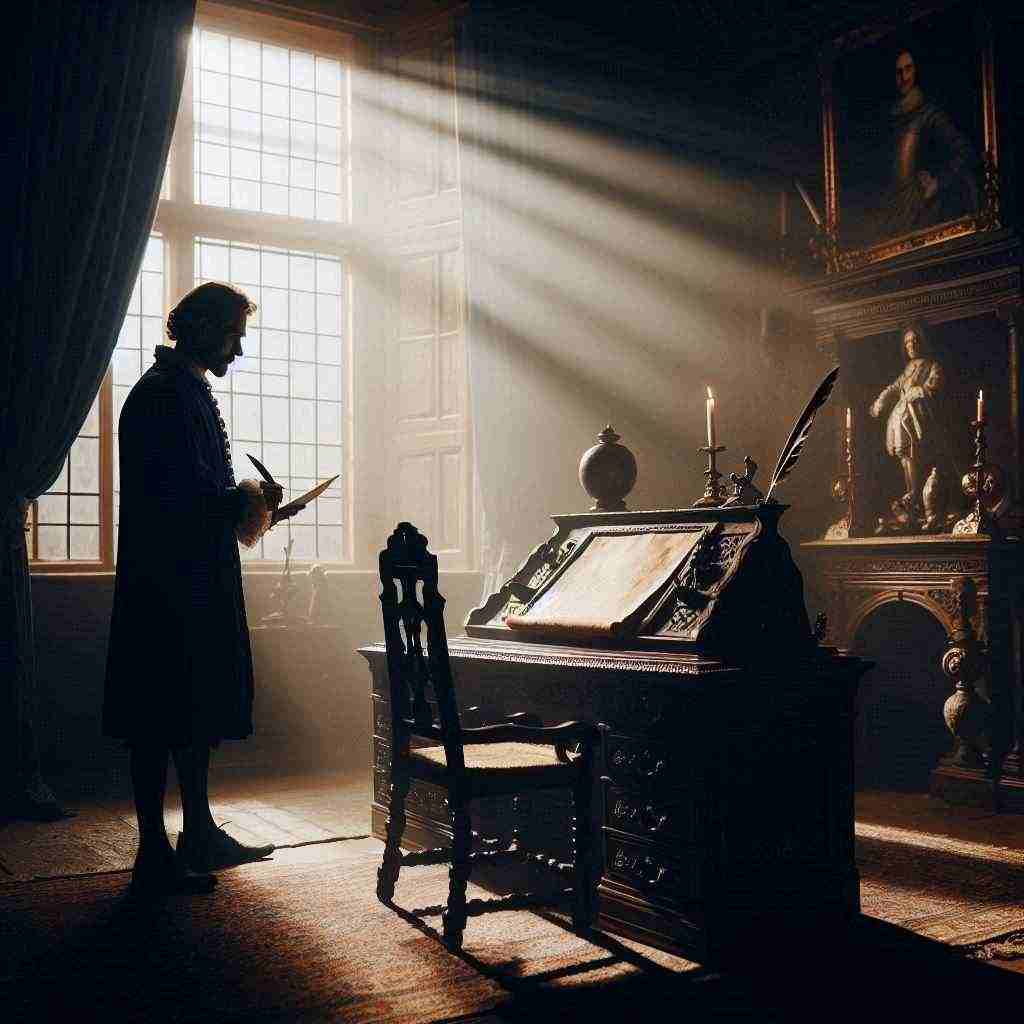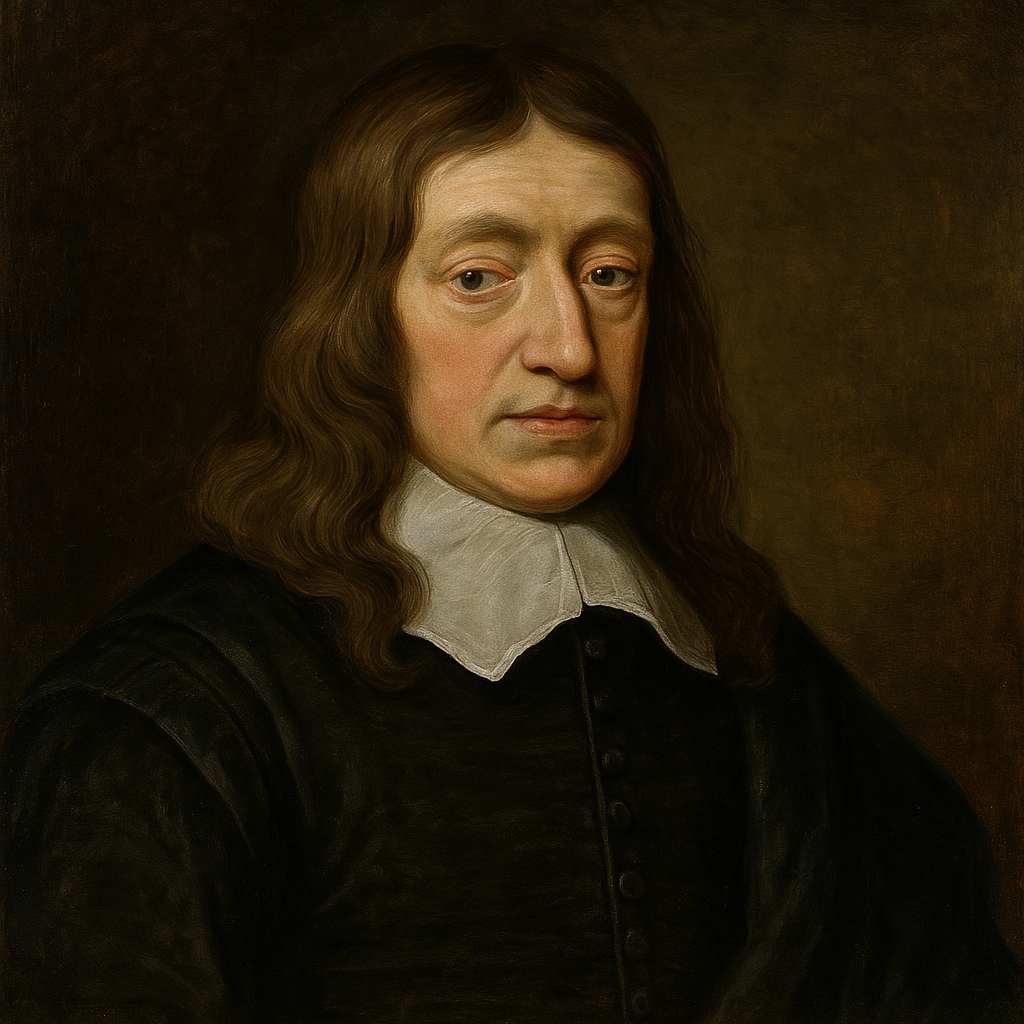On His Blindness
John Milton
1608 to 1674

When I consider how my light is spent
Ere half my days in this dark world and wide,
And that one talent which is death to hide
Lodg’d with me useless, though my soul more bent
To serve therewith my Maker, and present
My true account, lest he returning chide,
“Doth God exact day-labour, light denied?”
I fondly ask. But Patience, to prevent
That murmur, soon replies: “God doth not need
Either man’s work or his own gifts: who best
Bear his mild yoke, they serve him best. His state
Is kingly; thousands at his bidding speed
And post o’er land and ocean without rest:
They also serve who only stand and wait.”
John Milton's On His Blindness
"On His Blindness" is a powerful sonnet by John Milton that explores themes of disability, faith, and service to God. The poem reflects Milton's personal struggle with blindness, which he developed in middle age. Through this deeply introspective work, Milton grapples with his inability to use his "one talent" (his writing ability) to serve God as he believes he should.
The sonnet follows the traditional Petrarchan structure, with an octave (first eight lines) presenting a problem or question, and a sestet (last six lines) offering a resolution. Milton's masterful use of enjambment creates a sense of continuous thought, mirroring the internal dialogue between the poet and the personified figure of Patience.
The poem's strength lies in its honest portrayal of spiritual doubt and ultimate acceptance. Milton's use of biblical allusions, particularly to the Parable of the Talents, adds depth to his personal reflection. The final line, "They also serve who only stand and wait," is particularly poignant and has become one of the most famous lines in English poetry, offering comfort to those who feel their contributions are limited.
John Milton (1608-1674) was an English poet, polemicist, and civil servant for the Commonwealth of England. He is best known for his epic poem "Paradise Lost," widely regarded as one of the greatest works of English literature. Milton was a scholarly man of letters, a polemical writer, and an official serving under Oliver Cromwell. He wrote at a time of religious flux and political upheaval in England, and his poetry and prose reflect deep convictions and deal with contemporary issues, such as his treatise condemning censorship, "Areopagitica." Milton completely lost his sight by 1652, midway through his life, but continued to write major works, including "Paradise Lost," which he dictated to assistants.
This text was generated by AI and is for reference only. Learn more
Want to join the discussion? Reopen or create a unique username to comment. No personal details required!



Comments
No comments yet. Be the first to comment!